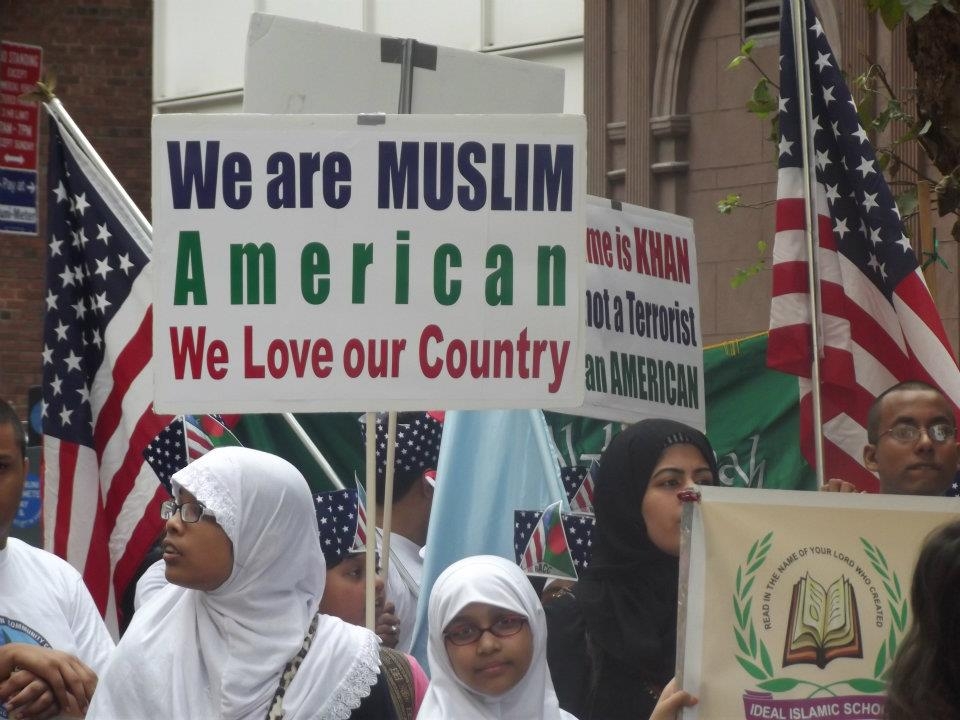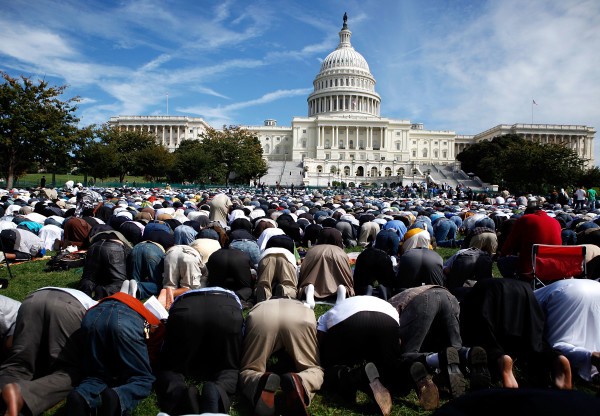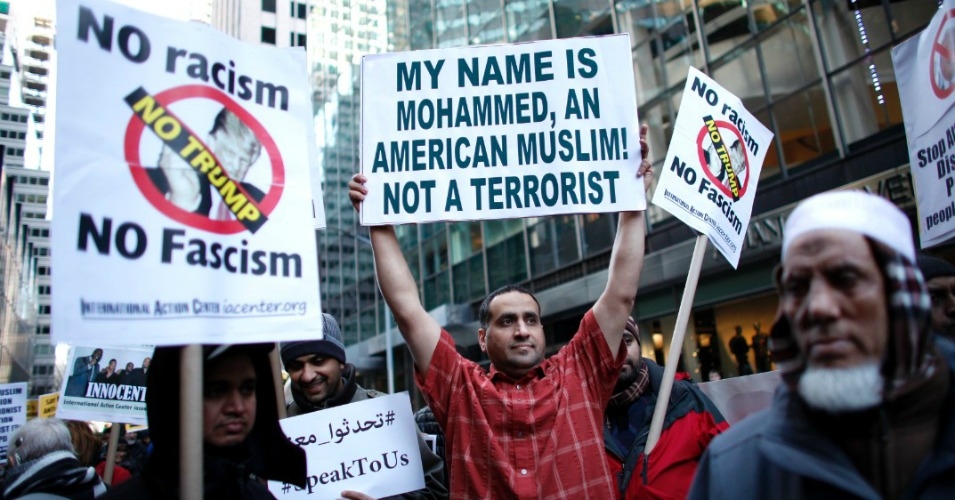
“The rising power of American Muslims” is the title of special issue of The Newsweek on the 20th anniversary of 9/11. It published an article by Steve Friess under the title: Since 9/11, US Muslims have gained unprecedented political, cultural influence.
It’s been an impressive 2021 so far for Muslim Americans. The U.S. Senate, that bastion of partisan gridlock, overwhelmingly confirmed, Judge Zaidi Quraishi, the nation’s first Muslims as a federal district court judge and Lina Khan to chair the Federal Trade Commission. Legislatures in five states swore in their first Muslim members, including a non-binary, queer hijab-wearing representative in, of all places, Oklahoma. Three Detroit suburbs are poised this fall to elect their first Muslim mayors, according to the Newsweek.
The recent rise of many Muslim Americans to positions of power and influence—in Washington and in statehouses, on big screens and small ones, across playing fields and news desks—is a development that few in the U.S. would have predicted two decades ago, Muslims included.
It is the experience of coming of age in this post-9/11 environment, experts say, that drew a new generation of young Muslims to activism, and motivated them to use their voices in political and cultural arenas to debunk misinformation. That they’ve found a receptive audience beyond the Muslim community suggests to some observers that many Americans now understand that the anti-Islamic rhetoric they’ve been served in recent years is based on myths and untrue. As Minnesota Attorney General Keith Ellison, who in 2007 became the first Muslim sworn in as a member of Congress, tells Newsweek, “The haters have been proven to be liars.”
9/11 set off a wave of Islamophobia that has endured to this day
The September 11 attacks stirred a crescendo of Islamophobia that for the next two decades challenged their beliefs about what it means to be American, according to Dallas News.
Muslims were not the only victims of post-9/11 Islamophobia. The hate against the community also plagued others, such as Sikhs and other non-Muslims of South Asian descent, who were targeted solely for their appearance.
Harbhajan Singh, 65, director of the Gurdwara Nishkam Seva religious and community center in Irving,Texas, said Sikhs around the country were harassed and assaulted because of their religious practice of having beards and wearing turbans.
But rather than reject or distance themselves from the Muslim community, Singh said, many Sikhs, including those in Dallas-Fort Worth, chose to show solidarity.
“We made connections to show them that we support them in their time of need. The Muslim community is as affected by these extremists as perhaps other communities are,” he said. “We felt that the Muslim community was being wrongfully, collectively aligned with these extreme views and they need the support of other people to come around to fight against those types of sentiments together.”
Muslims growing up post-9/11 still can’t escape the long shadow of that day
Muslims who grew up post-9/11 are unable to escape the long shadow of that day, forever pushed to be on the defensive, to justify our place in this country, according to Boston Globe.
What followed the attacks was a war on terror that claimed hundreds of thousands of lives overseas, stripped our civil rights here at home, and caused enormous spikes in anti-Muslim violence.
One of the terrifying anti-Muslim violence happened in 2015 when three Muslim college students were shot to death in Chapel Hill, N.C., by a man who prosecutors said had made hateful comments to them in the past. In 2017, a shooter killed six people at a Quebec City mosque. Two years later, 51 Muslim worshipers were killed in attacks in Christchurch, New Zealand.
Islamophobia does not just hurt Muslims. On Sept. 15, 2001, in what is believed to be the first hate-motivated murder in response to 9/11, a Sikh gas station owner was fatally shot in Mesa, Arizona and in 2012, a gunman killed six people at a Sikh gurdwara in Oak Creek, Wisconsin, before shooting himself. Experts suspected he believed he was targeting a mosque.
The reverberations from 9/11 are far from history
Twenty years may have passed, but for Muslims, the reverberations from 9/11 are far from history.
The Council on American-Islamic Relations (CAIR), the nation’s largest Muslim civil rights and advocacy organization, in July 2021 released a mid-year report highlighting serious cases of anti-Muslim incidents that occurred in the United States during the first seven months of 2021.
CAIR typically publishes an annual report tracking hate crimes and bias incidents. The organization decided to release a mid-year “snapshot report” because of a spike in May and June, Robert McCaw, CAIR’s government affairs director, told CNN.
The hundreds of anti-Muslim incidents include hate crimes, harassment, school bullying, discrimination and hate speech.
CAIR documented a spike in anti-Muslim incidents in May and June, including four at mosques in May alone. Those cases involved vandalism, harassment towards women who wear hijab or headscarf and an attempted stabbing.
Remembrance and Resilience
Meanwhile, the Council on American-Islamic Relations has released a survey report to mark the twentieth anniversary. Titled “Remembrance and Resilience: American Muslims Twenty Years After 9/11,” this educational report reviews and analyzes the ways 9/11 has impacted the Muslim community in the United States.
Key research findings of the Survey are:
- 63% of American Muslims believe that American media coverage of Muslims has not become more accurate in the years since 9/11.
- 40% of respondents said that they are frequently stopped for extra screening or questioning at airports [strongly agree (20%) and agree (20%)]. This number is on par with the amount of complaints CAIR receives concerning immigration and travel related issues.
- 95% of Muslims said that when they hear negative comments about Islam and Muslims, they always (45%) or sometimes (50%) speak out.
- 69% of our respondents said that they have personally experienced one or more incidents of anti-Muslim bigotry or discrimination since 9/11. Moreover, 83% said that they know a Muslim who has personally experienced anti-Muslim bigotry or discrimination since 9/11.
- 79% of our respondents said that they witnessed or experienced increased anti-Muslim bigotry after the 9/11 attacks. 69% said that they witnessed or experienced it after President Trump’s Muslim Ban and 51% stated that they witnessed or experienced it after the invasion of Iraq. [Note: Respondents were asked to check all that apply].
- 34% of those surveyed said that anti-Muslim rhetoric in the years since 9/11 has had an impact on their mental health [strongly agree (14%) and agree (20%)].
- 47% of Muslims reported feeling comfortable requesting a religious accommodation at school or work. 19% said that they feel somewhat comfortable while 19% do not feel comfortable.
- African American Muslims are more likely to be comfortable requesting a religious accommodation at school or work (58% strongly agree or agree) and more likely to always feel comfortable wearing Islamic religious attire in public (52%) than other ethnic groups in the American Muslim community, including respondents who identify as White, African, Arab, South Asian, etc.
- 72% of Muslim women have personally experienced one or more incidents of anti-Muslim bigotry or discrimination since 9/11, compared to 67% of Muslim men. Muslim women also reported feeling less accepted in American society (56%) compared to Muslim men (65%).
- 63% of Muslims report that their mosques have engaged in increased interfaith work since 9/11.
The CAIR survey was based on 1,338 responses from different walks of life in the Muslim community.
Abdus Sattar Ghazali is the Chief Editor of the Journal of America (www.journalofamerica.net) email: [email protected]











































